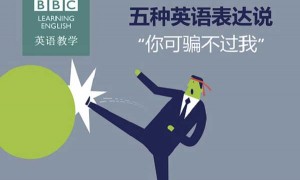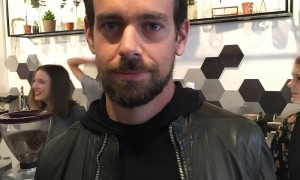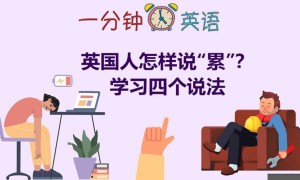TOKYO -- Daisuke Tenbata, 40, a candidate for the minor opposition party Reiwa Shinsengumi who secured a seat in the House of Councillors election on July 10, has overcome many hardships after a medical malpractice left him with a severe disability when he was a teen.
Tenbata's life changed drastically at age 14 due to a medical error. He came up against difficulties in this election campaign, where he ran in the proportional representation bloc for the first time. Caregivers were initially not allowed to assist candidates during five-minute political speeches that aired on TV. However, after directly approaching the Ministry of Internal Affairs and Communications, he was granted permission to be accompanied by his helper. The Mainichi Shimbun delved deeply into his life story to find out why he aspired to become a politician.
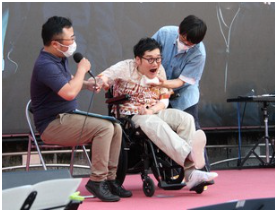
The life-altering incident happened in April 1996. A 14-year-old Tenbata was a student at a national junior high school. One day, he suddenly lost consciousness and was sent to hospital by ambulance. He was diagnosed with acute diabetes and received treatment. However, there was a medical malpractice, and he was under cardiac arrest for a prolonged period.
After being in a coma for about three weeks, he woke up to a world that was completely different from what he had previously known. His face, hands and legs moved involuntarily. He was also visually impaired. Though he could see colors and three-dimensional objects, he had trouble viewing flat surfaces like computer screens, and could not read letters. At the time, he had no means to convey the pain he felt to those around him. Tenbata recalled the time and said, "I didn't have the hope to live. I only felt despair."
about half a year later, he saw a ray of hope. His mother had come up with a communication method for him. For instance, his caregiver would say aloud "A ka sa ta na," or the first row of syllables in the Japanese syllabary table that ends with the vowel sound "a," and if he pulled the caregiver's arm at "ta," the caregiver would then voice "Ta chi tsu te to." Tenbata again tugged the caregiver at the phonetic character he wished to convey. When he was able to communicate what he wanted to say for the first time, he and his mother were very happy, and he burst out crying. This interview was also conducted through this communication method, as well as email.
In December 1996, Tenbata entered a school for children with disabilities located in Chiba Prefecture, east of Tokyo. Here, he felt like a "disabled person" even more than the time of his hospitalization.
His own wishes were not considered at all as assistance was required for his entire schedule. He commented, "I was disconnected from society's information, which I had taken for granted, and felt like I was being controlled. I was made to think that I could only survive there, and experienced a situation where you're forced to obey their rules."
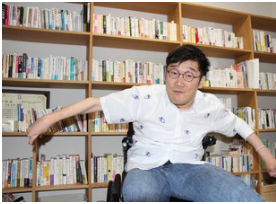
However, when he reached senior high school age, he met a teacher that changed his outlook on life.
"Why don't we try for one more year?" The teacher told Tenbata, who had lost all hope and thought death was the only option if his disability could not be cured. "He broadened my world when I couldn't have hope for anything other than my body's recovery," Tenbata said.
Feeling encouraged, Tenbata studied hard, dreaming of becoming a university student, from a desire to create a place where he belongs. In April 2004, he enrolled in Japan Lutheran College in Tokyo. He said, "If I don't actively try to gain information, I'll be cut off from information. To me, learning is time spent living itself."
After graduation, he went on to graduate school at Ritsumeikan University. He decided to research about businesses where people with disabilities work, as well as assistance to such individuals during work.
He felt that in Japan, there is barely any expectations for people with severe disabilities to live on their own while using the public assistance system.
He also thought that for people with disabilities to be independent and have their voice be heard in society, they themselves have to stay connected with society. Tenbata founded a welfare facility, and also earned a doctorate degree. In April this year, he became a research fellow at Ritsumeikan University's Kinugasa Research Organization.
As he strongly wished to raise a voice to represent people with disabilities, Reiwa Shinsengumi leader Taro Yamamoto asked him to run in the upper house election, to which Tenbata readily agreed. Through talks with Yamamoto and others, he grew convinced that becoming a politician would enable him to bring to life his desire to change society.
During the election campaign, Tenbata held street speeches with his caregiver, who delivered his messages on his behalf through the special communication method. He told voters, "What I have become painfully aware of throughout these 25 years since getting a disability is the harsh reality that your choices become so limited. The feeling that you're not needed by society robs you of your power to live. There are many people who have been deprived of options or have nowhere to belong just because they are, like me, slightly different from others. I want to change the system with you all so that we can create a society where everyone has a place they belong."
On the night of July 10, when Tenbata learned that he was certain to garner a seat, he thanked his supporters while appearing deeply moved.



